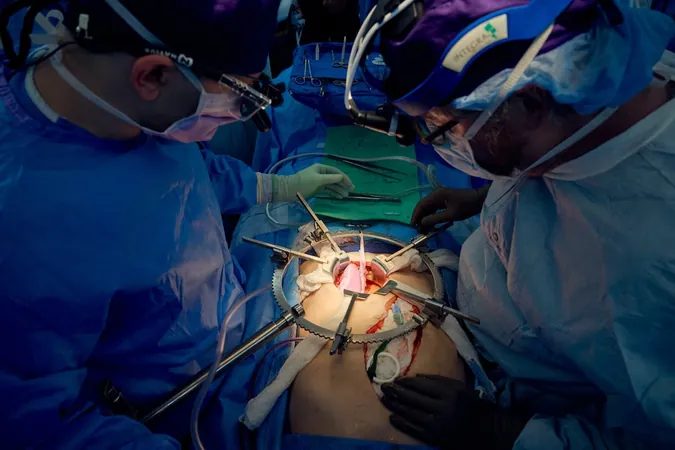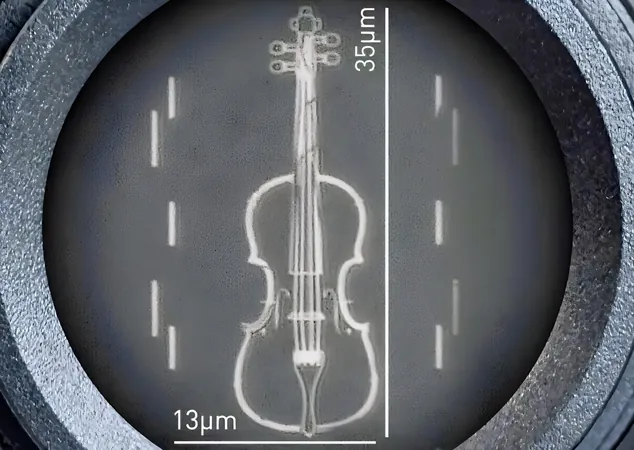
The Controversial Proposal: Utilizing Brain-Dead Bodies for Medical Research
2025-05-02
Author: Michael
A Bold New Frontier in Bioethics
A group of four esteemed U.S. scientists is igniting a heated discussion in the realm of bioethics. Hailing from major universities in California and New York, they are advocating for the use of brain-dead individuals as subjects for crucial medical experiments aimed at discovering treatments for deadly diseases.
Published in the journal Science, these experts highlight that while this method has been sporadically implemented—such as testing organ transplants from genetically modified pigs to humans in both the U.S. and China—they see potential for a wider application to evaluate new drugs and innovative gene therapies.
The PMD Concept: Unlocking New Research Possibilities
The scientists—bioethicist Brendan Parent, along with neurologists Neel Singhal, Claire Clelland, and Douglas Pet—propose a groundbreaking model called 'physiologically maintained deceased' (PMD). They suggest that conducting “hundreds, if not thousands” of comparative experiments on brain-dead individuals could accelerate medical breakthroughs.
Despite past experiments sparking moral debates, like a 1988 study at Stony Brook University that evaluated an anticoagulant treatment, the researchers argue the potential is largely untapped.
Understanding Brain Death: A Legal and Ethical Challenge
Brain death, defined as the irreversible cessation of all brain activity, is distinct from a coma, where brain functions are still present. This definitive state of death poses complex ethical dilemmas, especially concerning consent for research.
Federico de Montalvo Jäaskeläinen, a former chair of the Spanish Bioethics Committee, acknowledges the legal implications of using a brain-dead body in experiments. He highlights the need for prior authorization, either from the individual or their family.
From Sci-Fi to Reality: The Practical Applications of PMD Research
While the image of numerous brain-dead individuals connected to machines might evoke dystopian sci-fi scenarios, the researchers assure this would only occur in controlled environments, with proper consent.
These PMDs offer an opportunity to assess medical interventions over days, although their utility for long-term studies remains limited.
A Broader Perspective: Transplant Research and Ethical Dilemmas
The ongoing debate becomes more nuanced when considering organ donations, as shown by a recent experiment in China involving a brain-dead individual receiving a transgenic pig liver. Attending surgeon Pablo Ramirez notes that the primary aim should remain organ donation, with research as a secondary option.
Ramirez also pointed out two significant constraints: the urgency for organ transplantation over research efficiencies, and the limited timeframe within which a brain-dead body can function post-ideation.
The Scientific Potential: Advancing Knowledge for a Better Tomorrow
Nevertheless, proponents like Ramirez maintain that these experiments could pave the way for groundbreaking trials, potentially transforming the future of medical science. The urgency and possibilities for progress in this field are indeed vast, sparking not just curiosity but also crucial discussions about ethical boundaries.









 Brasil (PT)
Brasil (PT)
 Canada (EN)
Canada (EN)
 Chile (ES)
Chile (ES)
 Česko (CS)
Česko (CS)
 대한민국 (KO)
대한민국 (KO)
 España (ES)
España (ES)
 France (FR)
France (FR)
 Hong Kong (EN)
Hong Kong (EN)
 Italia (IT)
Italia (IT)
 日本 (JA)
日本 (JA)
 Magyarország (HU)
Magyarország (HU)
 Norge (NO)
Norge (NO)
 Polska (PL)
Polska (PL)
 Schweiz (DE)
Schweiz (DE)
 Singapore (EN)
Singapore (EN)
 Sverige (SV)
Sverige (SV)
 Suomi (FI)
Suomi (FI)
 Türkiye (TR)
Türkiye (TR)
 الإمارات العربية المتحدة (AR)
الإمارات العربية المتحدة (AR)